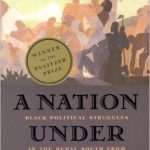
Guest: Linda Gordon, Professor Emerita of History at New York University
Host: Alina Scott, PhD Candidate in the History Department at the University of Texas at Austin
Historians argue that several versions of the group known as the Ku Klux Klan or KKK have existed since its inception after the Civil War. But, what makes the Klan of the 1920s different from the others? Linda Gordon, the winner of two Bancroft Prizes and the Los Angeles Times Book Prize, writes in The Second Coming of the KKK The Ku Klux Klan: of the 1920s and the American Political Tradition that the KKK of the 1920s expanded its mission to include anti-Black racism, anti-Catholicism, and anti-Semitism, electing legislators and representatives in government, and were hyper-visible. “By legitimizing and intensifying bigotry, and insisting that only white Protestants could be ‘true Americans,’ a revived and mainstream Klan in the 1920s left a troubling legacy that demands a reexamination today.” With more than a million members at its peak, the Second coming of the KKK was expansive, to say the least.



